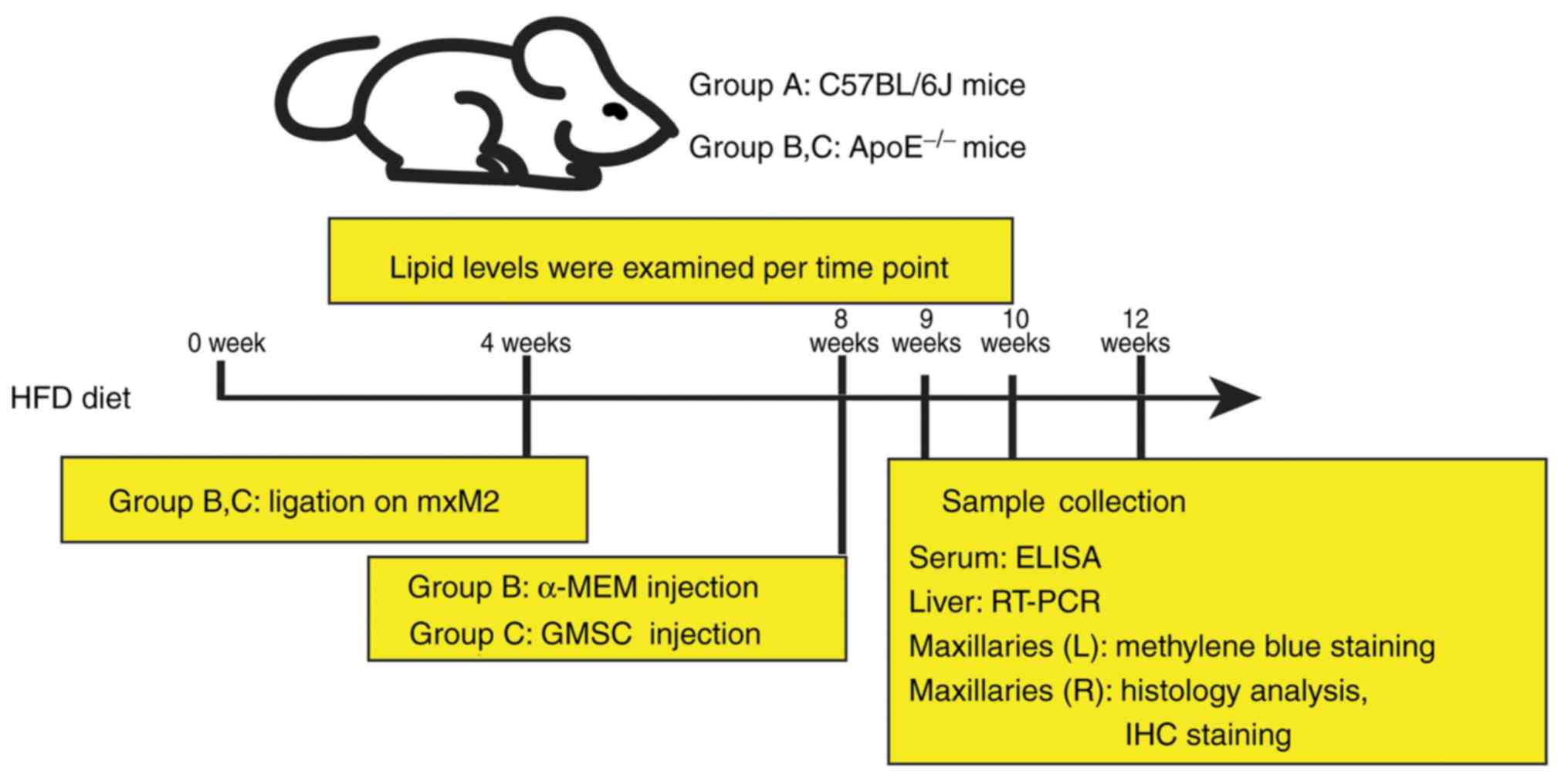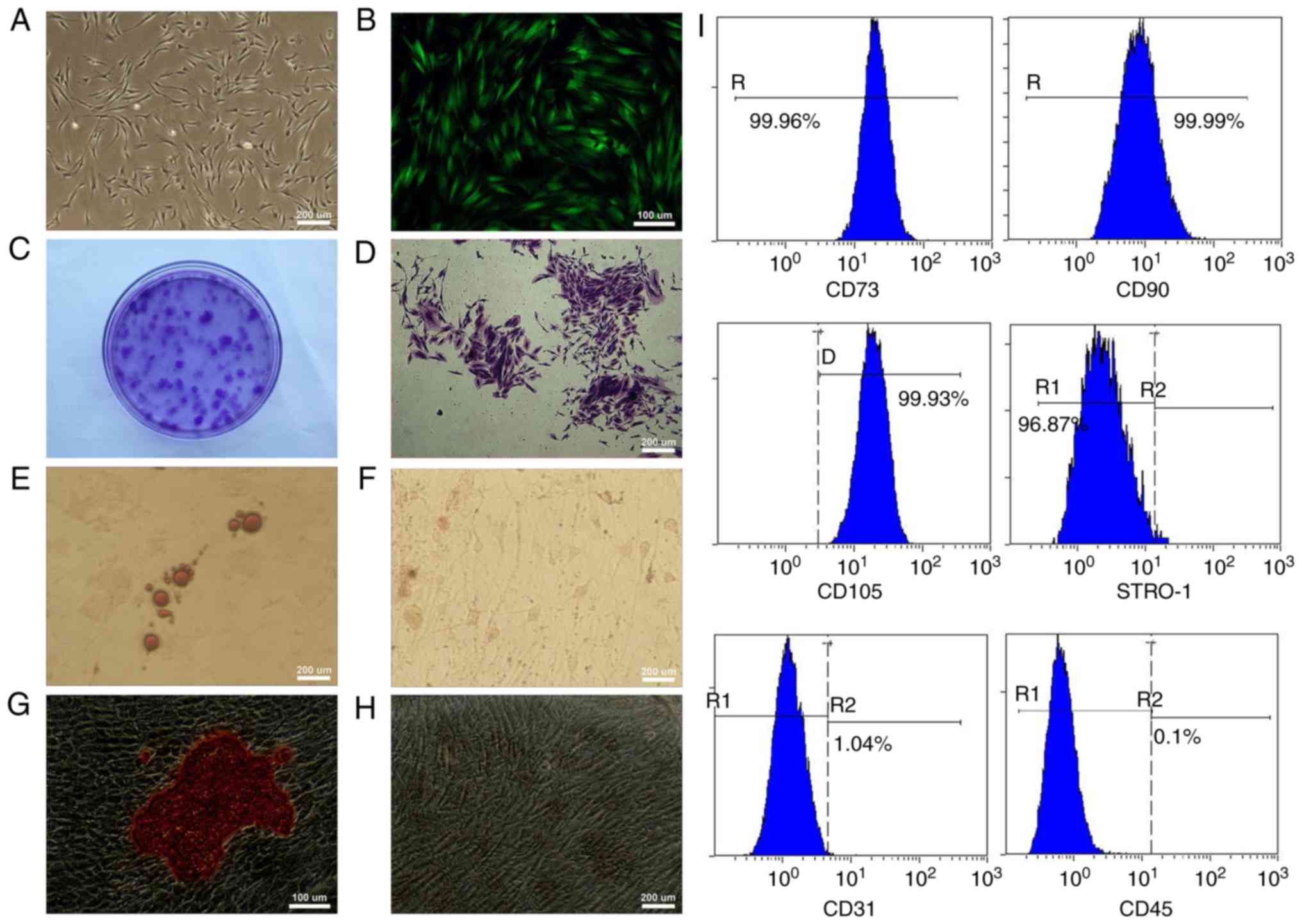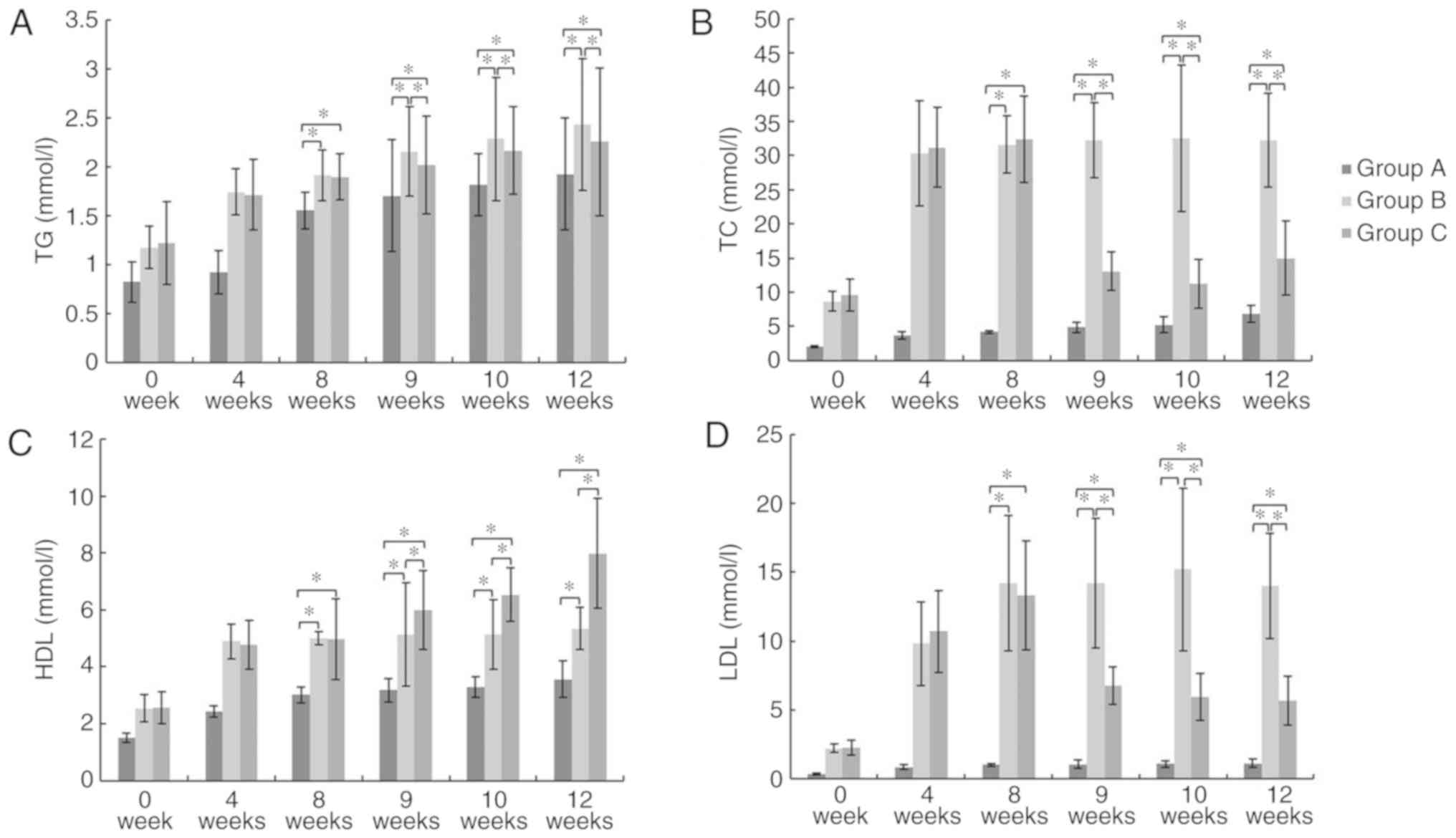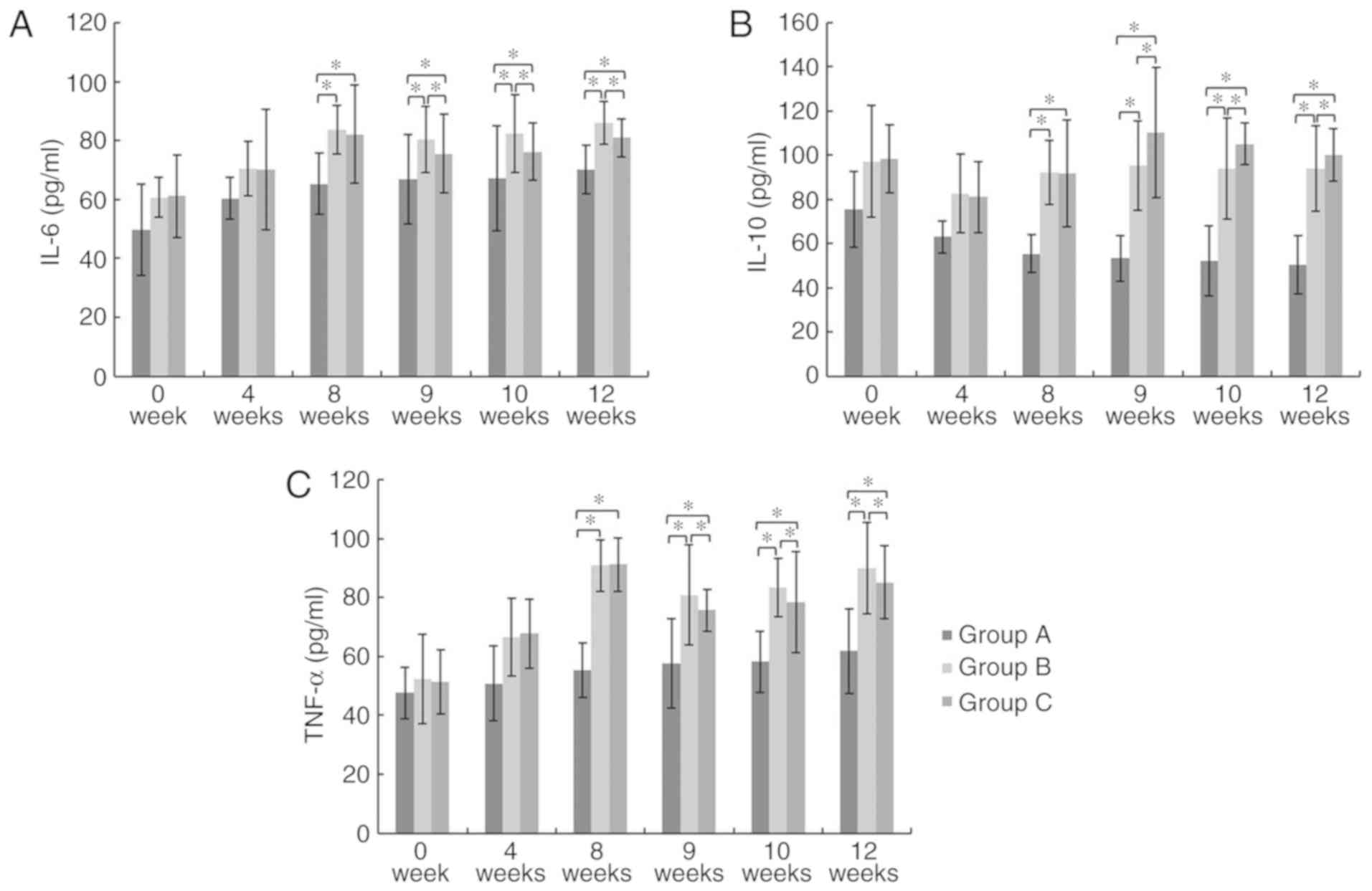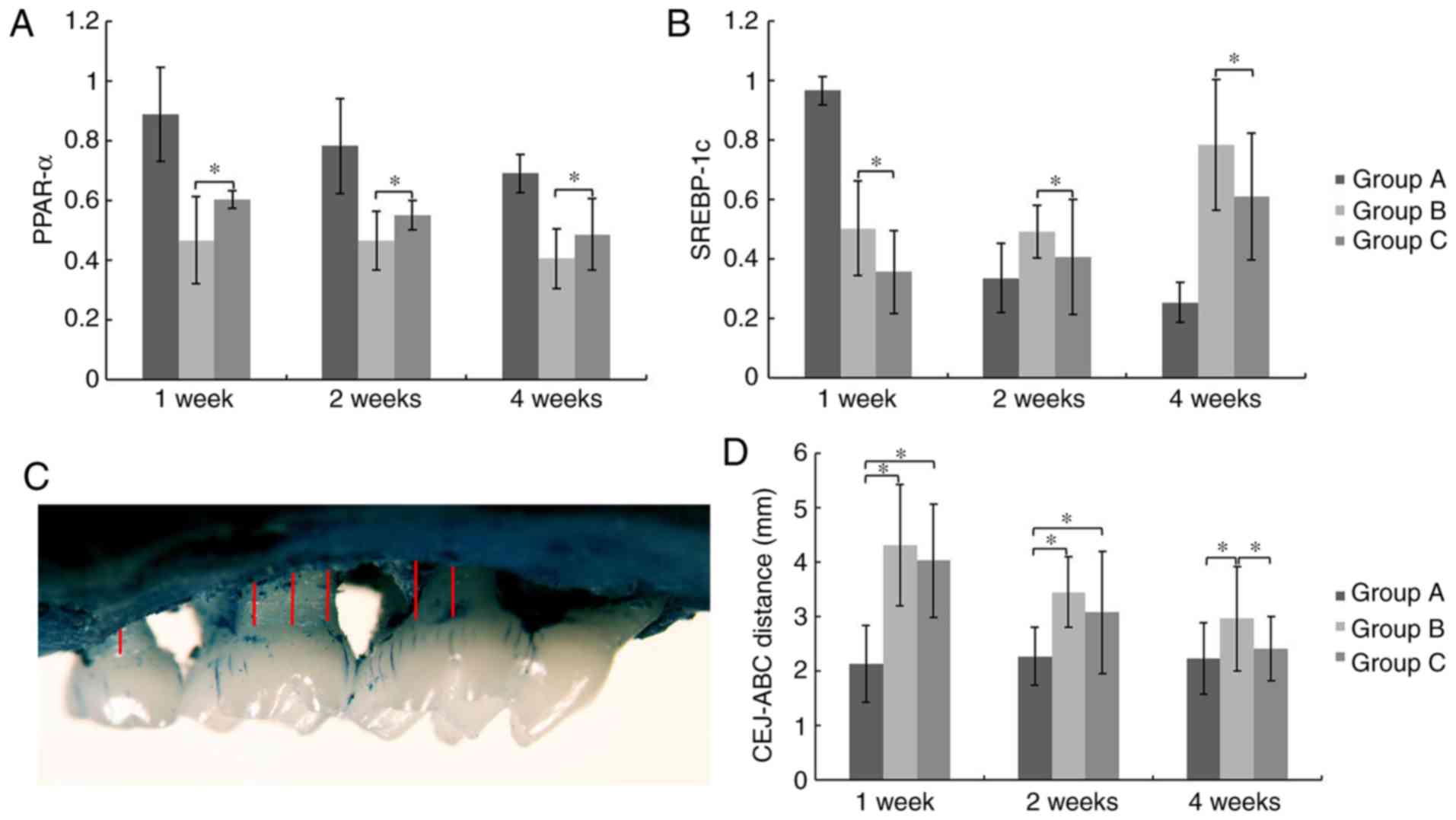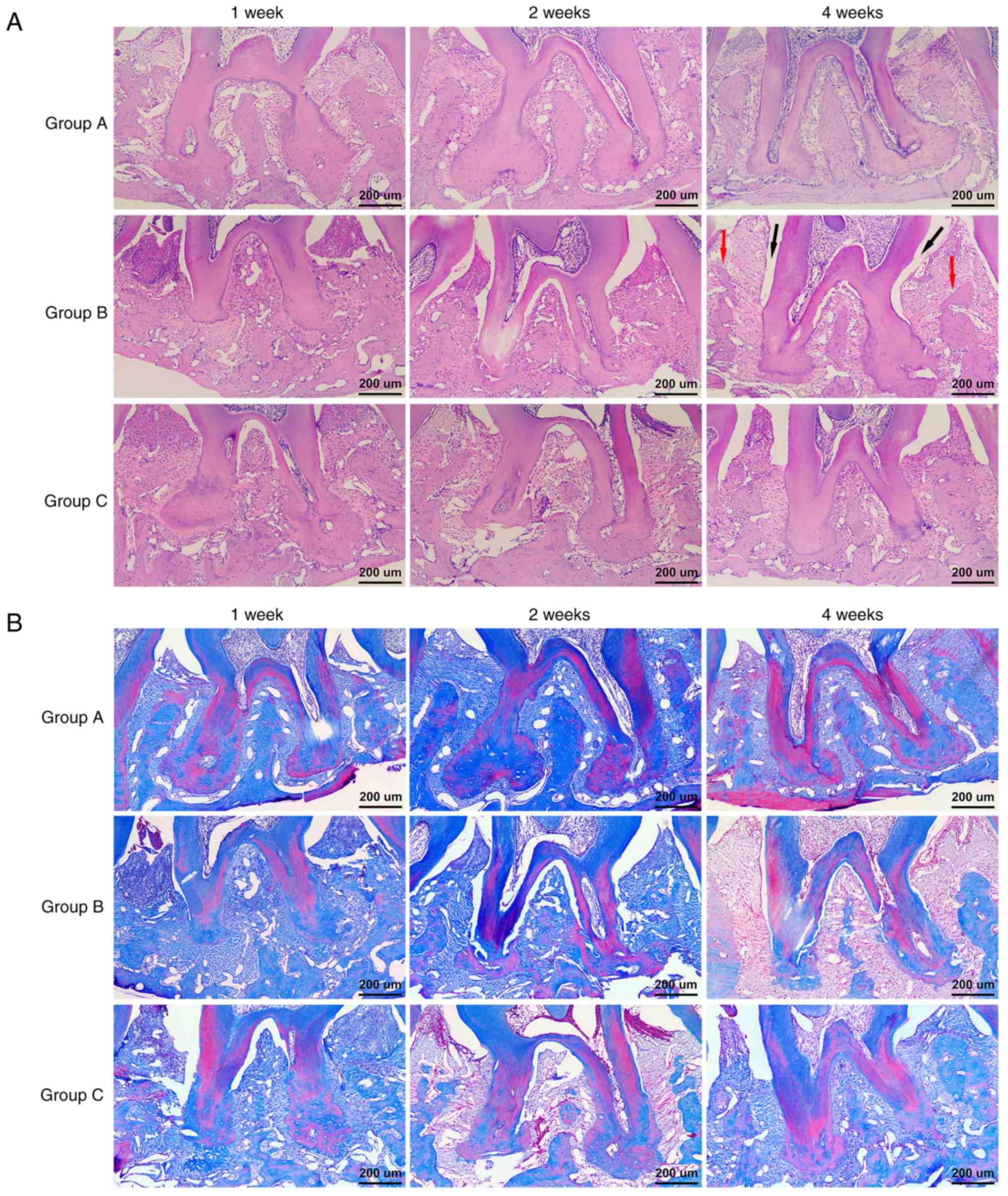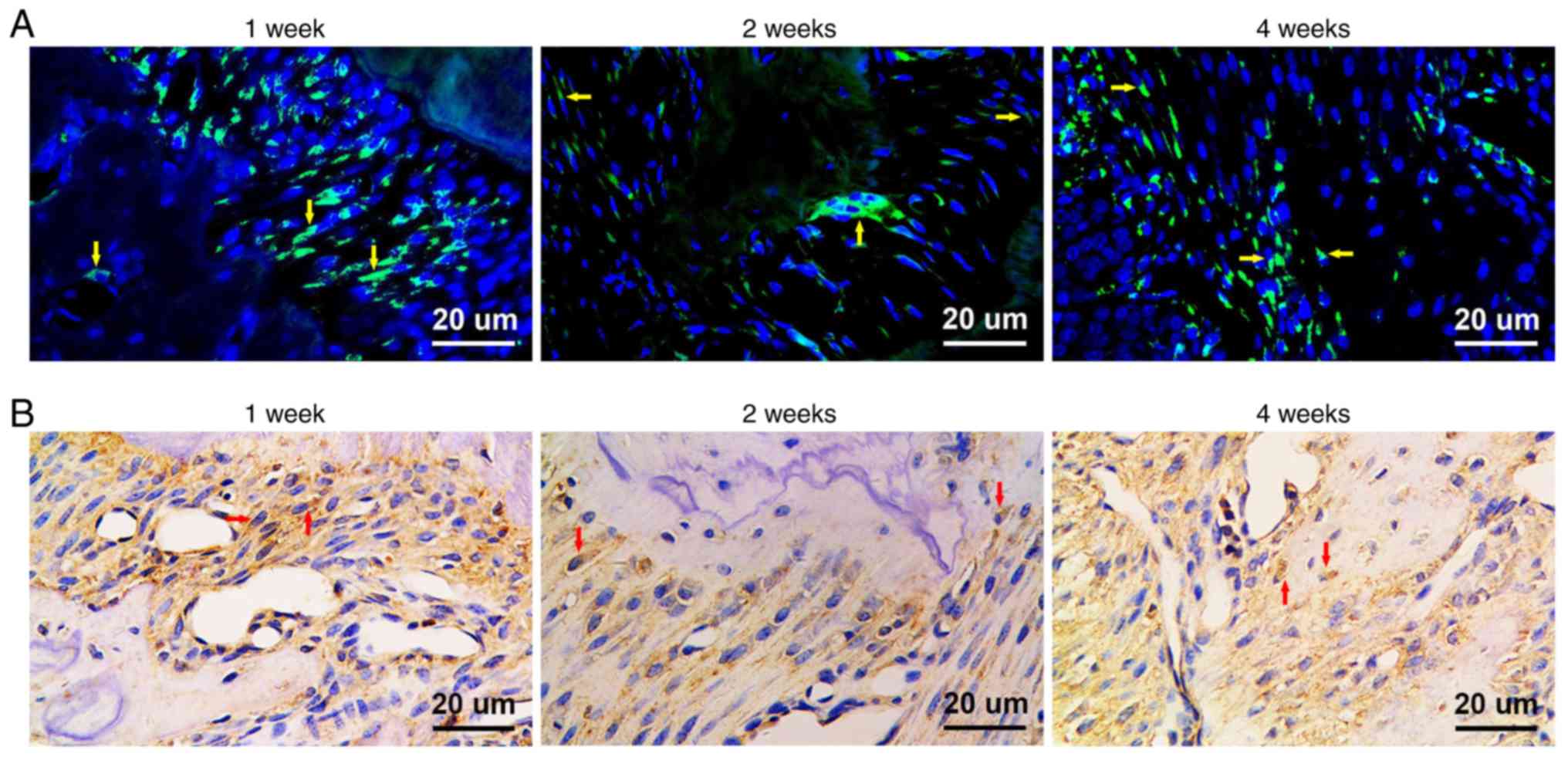|
1
|
1999 International International Workshop
for a Classification of Periodontal Diseases and Conditions.
Papers; Oak Brook, illinois: October 30-November 2, 1999. Ann
Periodontol. 4(i): pp. 1–112. 1999, PubMed/NCBI
|
|
2
|
Jain N, Jain GK, Javed S, Iqbal Z,
Talegaonkar S, Ahmad FJ and Khar RK: Recent approaches for the
treatment of periodontitis. Drug Discov Today. 13:932–943. 2008.
View Article : Google Scholar : PubMed/NCBI
|
|
3
|
Nelson RH: Hyperlipidemia as a risk factor
for cardiovascular disease. Prim Care. 40:195–211. 2013. View Article : Google Scholar : PubMed/NCBI
|
|
4
|
Awartani F and Atassi F: Evaluation of
periodontal status in subjects with hyperlipidemia. J Contemp Dent
Pract. 11:033–040. 2010. View Article : Google Scholar : PubMed/NCBI
|
|
5
|
Sangwan A, Tewari S, Singh H, Sharma RK
and Narula SC: Periodontal status and hyperlipidemia: Statin users
versus non-users. J Periodontol. 84:3–12. 2013. View Article : Google Scholar : PubMed/NCBI
|
|
6
|
Sandi RM, Pol KG, Basavaraj P, Khuller N
and Singh S: Association of serum cholesterol, triglyceride, high
and low density lipoprotein (HDL and LDL) levels in chronic
periodontitis subjects with risk for cardiovascular disease (CVD):
A cross sectional study. J Clin Diagn Res. 8:214–216.
2014.PubMed/NCBI
|
|
7
|
D'Aiuto F, Nibali L, Parkar M, Suvan J and
Tonetti MS: Short-term effects of intensive periodontal therapy on
serum inflammatory markers and cholesterol. J Dent Res. 84:269–273.
2005. View Article : Google Scholar : PubMed/NCBI
|
|
8
|
Maglakelidze N, Galogre A and Tsagareli Z:
Functional-morphologic aspects of changes of mucosal gingiva
microcirculatory bed vessels in experimental gingivitis against the
background of hypercholesterolemia. Georgian Med News. 121:71–74.
2005.(In Russian).
|
|
9
|
Li L, Messas E, Batista EL Jr, Levine RA
and Amar S: Porphyromonas gingivalis infection accelerates
the progression of atherosclerosis in a heterozygous apolipoprotein
E-deficient murine model. Circulation. 105:861–867. 2002.
View Article : Google Scholar : PubMed/NCBI
|
|
10
|
Buhlin K, Gustafsson A, Pockley AG,
Frostegård J and Klinge B: Risk factors for cardiovascular disease
in patients with periodontitis. Eur Heart J. 24:2099–2107. 2003.
View Article : Google Scholar : PubMed/NCBI
|
|
11
|
Seijkens T, Hoeksema MA, Beckers L, Smeets
E, Meiler S, Levels J, Tjwa M, de Winther MP and Lutgens E:
Hypercholesterolemia-induced priming of hematopoietic stem and
progenitor cells aggravates atherosclerosis. FASEB J. 28:2202–2213.
2014. View Article : Google Scholar : PubMed/NCBI
|
|
12
|
Fentoğlu Ö, Kırzıoğlu FY, Bulut MT, Kumbul
Doğuç D, Kulaç E, Önder C and Günhan M: Evaluation of lipid
peroxidation and oxidative DNA damage in patients with
periodontitis and hyperlipidemia. J Periodontol. 86:682–688. 2015.
View Article : Google Scholar : PubMed/NCBI
|
|
13
|
Zhang Q, Shi S, Liu Y, Uyanne J, Shi Y,
Shi S and Le AD: Mesenchymal stem cells derived from human gingiva
are capable of immunomodulatory functions and ameliorate
inflammation-related tissue destruction in experimental colitis. J
Immunol. 183:7787–7798. 2009. View Article : Google Scholar : PubMed/NCBI
|
|
14
|
Su WR, Zhang QZ, Shi SH, Nguyen AL and Le
AD: Human gingiva-derived mesenchymal stromal cells attenuate
contact hypersensitivity via prostaglandin E2-dependent mechanisms.
Stem Cells. 29:1849–1860. 2011. View
Article : Google Scholar : PubMed/NCBI
|
|
15
|
Wada N, Wang B, Lin NH, Laslett AL,
Gronthos S and Bartold PM: Induced pluripotent stem cell lines
derived from human gingival fibroblasts and periodontal ligament
fibroblasts. J Periodontal Res. 46:438–447. 2011. View Article : Google Scholar : PubMed/NCBI
|
|
16
|
Yu X, Ge S, Chen S, Xu Q, Zhang J, Guo H
and Yang P: Human gingiva-derived mesenchymal stromal cells
contribute to periodontal regeneration in beagle dogs. Cells
Tissues Organs. 198:428–437. 2013. View Article : Google Scholar : PubMed/NCBI
|
|
17
|
Xu QC, Wang ZG, Ji QX, Yu XB, Xu XY, Yuan
CQ, Deng J and Yang PS: Systemically transplanted human
gingiva-derived mesenchymal stem cells contributing to bone tissue
regeneration. Int J Clin Exp Pathol. 7:4922–4929. 2014.PubMed/NCBI
|
|
18
|
Xu X, Chen C, Akiyama K, Chai Y, Le AD,
Wang Z and Shi S: Gingivae contain neural-crest- and
mesoderm-derived mesenchymal stem cells. J Dent Res. 92:825–832.
2013. View Article : Google Scholar : PubMed/NCBI
|
|
19
|
EI-Tantawy WH and Haleem EN: Therapeutic
effects of stem cell on hyperglycemia, hyperlipidemia, and
oxidative stress in alloxan-treated rats. Mol Cell Biochem.
391:193–200. 2014. View Article : Google Scholar : PubMed/NCBI
|
|
20
|
Tang L, Li N, Xie H and Jin Y:
Characterization of mesenchymal stem cells from human normal and
hyperplastic gingiva. J Cell Physiol. 226:832–842. 2011. View Article : Google Scholar : PubMed/NCBI
|
|
21
|
Zhang QZ, Nguyen AL, Yu WH and Le AD:
Human oral mucosa and gingiva: A unique reservoir for mesenchymal
stem cells. J Dent Res. 91:1011–1018. 2012. View Article : Google Scholar : PubMed/NCBI
|
|
22
|
Xu QC, Hao PJ, Yu XB, Chen SL, Yu MJ,
Zhang J and Yang PS: Hyperlipidemia compromises homing efficiency
of systemically transplanted BMSCs and inhibits bone regeneration.
Int J Clin Exp Pathol. 7:1580–1587. 2014.PubMed/NCBI
|
|
23
|
Tomar GB, Srivastava RK, Gupta N,
Barhanpurkar AP, Pote ST, Jhaveri HM, Mishra GC and Wani MR: Human
gingiva-derived mesenchymal stem cells are superior to bone
marrow-derived mesenchymal stem cells for cell therapy in
regenerative medicine. Biochem Biophys Res Commun. 393:377–383.
2010. View Article : Google Scholar : PubMed/NCBI
|
|
24
|
Abe T and Hajishengallis G: Optimization
of the ligature-induced periodontitis model in mice. J Immunol
Methods. 394:49–54. 2013. View Article : Google Scholar : PubMed/NCBI
|
|
25
|
Livak KJ and Schmittgen TD: Analysis of
relative gene expression data using real-time quantitative PCR and
the 2(-Delta Delta C(T)) method. Methods. 25:402–408. 2001.
View Article : Google Scholar : PubMed/NCBI
|
|
26
|
Dominici M, Le Blanc K, Mueller I,
Slaper-Cortenbach I, Marini F, Krause D, Deans R, Keating A,
Prockop Dj and Horwitz E: Minimal criteria for defining multipotent
mesenchymal stromal cells. The international society for cellular
therapy position statement. Cytotherapy. 8:315–317. 2006.
View Article : Google Scholar : PubMed/NCBI
|
|
27
|
Chamberlain G, Fox J, Ashton B and
Middleton J: Concise review: Mesenchymal stem cells: Their
phenotype, differentiation capacity, immunological features, and
potential for homing. Stem Cells. 25:2739–2749. 2007. View Article : Google Scholar : PubMed/NCBI
|
|
28
|
Ren G, Zhang L, Zhao X, Xu G, Zhang Y,
Roberts AI, Zhao RC and Shi Y: Mesenchymal stem cell-mediated
immunosuppression occurs via concerted action of chemokines and
nitric oxide. Cell Stem Cell. 2:141–150. 2008. View Article : Google Scholar : PubMed/NCBI
|
|
29
|
Wang F, Yu M, Yan X, Wen Y, Zeng Q, Yue W,
Yang P and Pei X: Gingiva-derived mesenchymal stem cell-mediated
therapeutic approach for bone tissue regeneration. Stem Cells Dev.
20:2093–2102. 2011. View Article : Google Scholar : PubMed/NCBI
|
|
30
|
Ye Z, Yu X and Cheng L: Lentiviral gene
transduction of mouse and human stem cells. Methods Mol Biol.
430:243–253. 2008. View Article : Google Scholar : PubMed/NCBI
|
|
31
|
Plump AS, Smith JD, Hayek T, Aalto-Setälä
K, Walsh A, Verstuyft JG, Rubin EM and Breslow JL: Severe
hypercholesterolemia and atherosclerosis in apolipoprotein
E-deficient mice created by homologous recombination in ES cells.
Cell. 71:343–353. 1992. View Article : Google Scholar : PubMed/NCBI
|
|
32
|
Zhang SH, Reddick RL, Piedrahita JA and
Maeda N: Spontaneous hypercholesterolemia and arterial lesions in
mice lacking apolipoprotein E. Science. 258:468–471. 1992.
View Article : Google Scholar : PubMed/NCBI
|
|
33
|
Meulman T, Peruzzo DC, Stipp RN, Gonçalves
PF, Sallum EA, Casati MZ, Goncalves RB and Nociti FH Jr: Impact of
Porphyromonas gingivalis inoculation on ligature-induced
alveolar bone loss. A pilot study in rats. J Periodontal Res.
46:629–636. 2011.PubMed/NCBI
|
|
34
|
Lin J, Bi L, Yu X, Kawai T, Taubman MA,
Shen B and Han X: Porphyromonas gingivalis exacerbates
ligature-induced, RANKL-dependent alveolar bone resorption via
differential regulation of Toll-like receptor 2 (TLR2) and TLR4.
Infect Immun. 82:4127–4134. 2014. View Article : Google Scholar : PubMed/NCBI
|
|
35
|
Liang Y, Li X, Zhang Y, Yeung SC, Zhen Z,
Ip MSM, Tse HF, Lian Q and Mak JCW: Induced pluripotent stem
cells-derived mesenchymal stem cells attenuate cigarette
smoke-induced cardiac remodeling and dysfunction. Front Pharmacol.
8:5012017. View Article : Google Scholar : PubMed/NCBI
|
|
36
|
Liu GY, Liu J, Wang YL, Liu Y, Shao Y, Han
Y, Qin YR, Xiao FJ, Li PF, Zhao LJ, et al: Adipose-derived
mesenchymal stem cells ameliorate lipid metabolic disturbance in
mice. Stem Cells Transl Med. 5:1162–1170. 2016. View Article : Google Scholar : PubMed/NCBI
|
|
37
|
Frodermann V, van Duijn J, van Pel M, van
Santbrink PJ, Bot I, Kuiper J and de Jager SC: Mesenchymal stem
cells reduce murine atherosclerosis development. Sci Rep.
5:155592015. View Article : Google Scholar : PubMed/NCBI
|
|
38
|
English K and Mahon BP: Allogeneic
mesenchymal stem cells: Agents of immune modulation. J Cell
Biochem. 112:1963–1968. 2011. View Article : Google Scholar : PubMed/NCBI
|
|
39
|
Lee RH, Oh JY, Choi H and Bazhanov N:
Therapeutic factors secreted by mesenchymal stromal cells and
tissue repair. J Cell Biochem. 112:3073–3078. 2011. View Article : Google Scholar : PubMed/NCBI
|
|
40
|
Zhang QZ, Su WR, Shi SH, Wilder-Smith P,
Xiang AP, Wong A, Nguyen AL, Kwon CW and Le AD: Human
gingiva-derived mesenchymal stem cells elicit polarization of m2
macrophages and enhance cutaneous wound healing. Stem Cells.
28:1856–1868. 2010. View Article : Google Scholar : PubMed/NCBI
|
|
41
|
Erpicum P, Rowart P, Poma L, Krzesinski
JM, Detry O and Jouret F: Administration of mesenchymal stromal
cells before renal ischemia/reperfusion attenuates kidney injury
and may modulate renal lipid metabolism in rats. Sci Rep.
7:86872017. View Article : Google Scholar : PubMed/NCBI
|
|
42
|
Gao S, Zhao Z, Wu R, Zeng Y, Zhang Z, Miao
J and Yuan Z: Bone marrow mesenchymal stem cell transplantation
improves radiation-induced heart injury through DNA damage repair
in rat model. Radiat Environ Biophys. 56:63–77. 2017. View Article : Google Scholar : PubMed/NCBI
|
|
43
|
Pyper SR, Viswakarma N, Yu S and Reddy JK:
PPARalpha: Energy combustion, hypolipidemia, inflammation and
cancer. Nucl Recept Signal. 8:e0022010. View Article : Google Scholar : PubMed/NCBI
|
|
44
|
Rakhshandehroo M, Knoch B, Müller M and
Kersten S: Peroxisome proliferator-activated receptor alpha target
genes. PPAR Res. 2010:6120892010. View Article : Google Scholar : PubMed/NCBI
|
|
45
|
Lin YY, Chen CY, Lin Y, Chiu YP, Chen CC,
Liu BH, Mersmann HJ, Wu SC and Ding ST: Modulation of glucose and
lipid metabolism by porcine adiponectin receptor 1-transgenic
mesenchymal stromal cells in diet-induced obese mice. Cytotherapy.
15:971–978. 2013. View Article : Google Scholar : PubMed/NCBI
|
|
46
|
Ferré P and Foufelle F: SREBP-1c
transcription factor and lipid homeostasis: Clinical perspective.
Horm Res. 68:72–82. 2007.PubMed/NCBI
|















